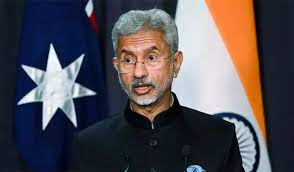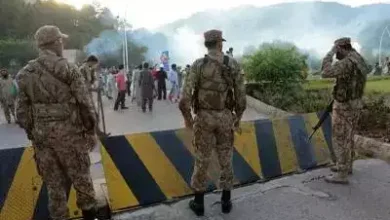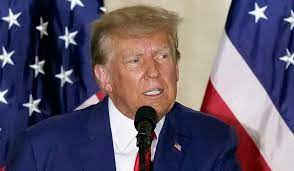According to Jaishankar in Nigeria, the Global South is about a “mindset, a solidarity, and a self-reliance.”
According to External Affairs Minister S. Jaishankar, the Global South is about a “mindset, a solidarity, and a self-reliance” and without the Global South’s success, planetary progress would not occur.

Speaking on India and the Global South at the Nigerian Institute of International Affairs (NIIA) here, he said that encouraging multipolarity and rebalancing is the current global agenda, which would return the globe to its natural variety.
According to Jaishankar, “The advancement of the Global South is the main topic of discussion today because, without its advancement, we will not see planetary progress.”
But the minister pointed out that this global discourse is inherently sidetracked.
A crisis arises, a significant event occurs, and another agenda is set in motion. And that’s when the global dialogue gets lost and veers off course. According to him, people tend to lose sight of what should be their top priority.
“So one of the big achievements of our (India’s) G20 presidency was that, after some experience with a very polarised divided world, which was very much, I would say, focused on one particular region…we were able to bring back the attention of the Global South,” added the minister.
“A mindset, a solidarity, and a self-reliance” are what the Global South is all about, he added.
According to Jaishankar, “Global South is mostly a mindset. It will belong to those who possess it. Those without it will never get it. It’s a mindset with a few fundamental ideas.”
These are tenets derived from our political culture, customs, and methods of conducting international affairs…Take non-intervention, for instance. For instance, not interfering, not passing judgment, or not forming an alliance,” he said.
According to the EAM, the Global South is also about solidarity. “Global South denotes heartfeltness. “Global South denotes a willingness to share,” said Jaishankar.
He went on to explain that, back when vaccination campaigns were still in place, India began exporting vaccines to one hundred other nations.
“And I draw a comparison to the Global North, where nations possess eight times as many vaccinations as their people, but they refuse to share them with a little island next to them. That is how the Global North and South vary from each other, according to Jaishankar.
According to the minister, the changes that have occurred over the last ten years have “enabled India to be an example, a partner and a contributor.”
The minister said that the belief that no one should be left behind should serve as the basic tenet that directs global governance, discussions, and debates.
“And when we talk about leaving no one behind. Africa’s wellbeing, in my opinion, is very crucial. In fact, I would argue that Africa’s ascent is even more significant since, in a shifting global order, we have seen continents flourish after being freed from colonial rule. This expansion over time has led to a rebalancing of both political and economic systems, according to Jaishankar.
“And that rebalancing today is creating a world of a multipolar nature, where middle powers and perhaps others to regional organisations would have a fairer and more equitable say in how the world is strong,” he said.
The minister said that, in many respects, returning the Earth to its natural variety is at the top of today’s global agenda. The world is varied because it was diverse. It was twisted during the era of Western rule.
“And in a post colonial world today, restoring that natural diversity is actually our collective objective,” he said.
According to Jaishankar, both new and ancient kinds of economic concentration are the source of today’s problems.
According to him, many of the people who ruled the globe for the previous 200 to 300 years still do so now, but they use new tools, new regimes, and other strategies.
Jaishankar has said that the current “world order continues obstinately because those who are in the driving seat, don’t want to create more seats for other people…”
On the latter part of his two-nation journey to Uganda and Nigeria, Jaishankar landed in Nigeria. After attending the Non-Aligned Movement (NAM) Summit in Uganda, he traveled to the capital city of Nigeria, Abuja, on Sunday.







